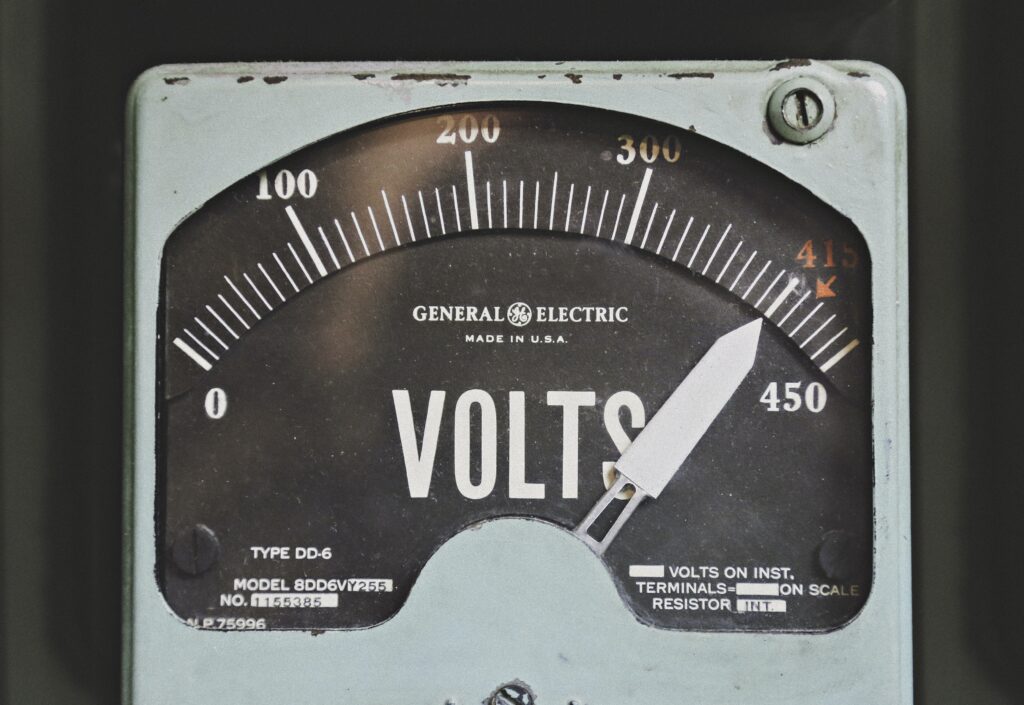Picture this: a quiet neighborhood, the sun setting on a warm summer evening, and your house humming along as if nothing has changed. How is this possible, you ask? Well, have you ever wondered if a battery generator can power your entire house? In this article, we will explore the potential of battery generators and whether they can keep your home up and running even during an unexpected power outage. Can a battery generator run a house? This is a common question that many homeowners ask when considering alternative power sources. In this article, we will explore the concept of battery generators and their ability to provide electricity for households.
Understanding Battery Generators
What is a battery generator?
A battery generator, also known as a power station or portable power supply, is a device that stores electrical energy in rechargeable batteries. These generators are designed to provide a source of power when traditional power sources are unavailable or impractical. They can be used to power a variety of appliances and electronics, making them a versatile option for households.
How does a battery generator work?
Battery generators work by converting stored electrical energy in batteries into usable power. They typically consist of three main components: the battery bank, the inverter, and the charging system. The battery bank stores the electrical energy, while the inverter converts the DC (direct current) power from the batteries into AC (alternating current) power that can be used by household appliances. The charging system allows the batteries to be recharged using various power sources, such as solar panels or traditional electrical outlets.
Types of Battery Generators
Portable battery generators
Portable battery generators are compact and lightweight devices that are designed for easy transport. They are typically used for outdoor activities, camping trips, or power emergencies. Portable generators often have built-in handles or wheels for convenience and can provide enough power to run small household appliances and electronics.
Standby battery generators
Standby battery generators are larger, more powerful generators that are permanently installed in a home or building. These generators are designed to provide backup power during power outages or when the main power source fails. Standby generators are typically connected directly to the home’s electrical system and can automatically start up within seconds of a power failure.
Inverter generators
Inverter generators are a type of generator that uses a combination of battery power and a small gasoline engine to produce electricity. These generators are known for their quiet operation and fuel efficiency. Inverter generators are often used for recreational activities, such as camping or boating, as well as for backup power in residential settings.
Solar battery generators
Solar battery generators harness the power of the sun to charge the batteries and provide electricity. These generators often consist of solar panels that are connected to the battery bank. Solar battery generators are environmentally friendly and can provide a sustainable source of power for households.

Can A Battery Generator Run A House?
Assessing your power needs
Before determining if a battery generator can run your house, it is important to assess your power needs. Consider the appliances and electronics that you will need to power during an outage or emergency. Make a list of the wattage requirements for each item to determine the total power needed.
Determining generator capacity
Once you have calculated your power needs, you can determine the generator capacity required. Battery generators are typically rated in watt-hours (Wh) or kilowatt-hours (kWh). To determine the appropriate capacity, consider the duration of the outage or emergency situation. Multiply the total power needs by the number of hours you expect to need power to get the required capacity.
Benefits of Using Battery Generators for Households
Energy efficiency
Battery generators are known for their energy efficiency. Unlike traditional generators that constantly run, battery generators only use power when needed. This significantly reduces energy waste and helps to keep electricity bills lower.
Quieter operation
One of the main advantages of battery generators is their quiet operation. Unlike traditional generators that can be noisy and disruptive, battery generators produce little to no noise. This makes them ideal for residential areas where noise restrictions may be in place.
Lower maintenance
Battery generators require less maintenance compared to traditional generators. Since they don’t have combustion engines or moving parts, there is no need for oil changes or regular servicing. This not only saves time and effort but also reduces maintenance costs in the long run.
Environmental impact
Battery generators have a lower environmental impact compared to traditional generators. They do not emit harmful gases or contribute to air pollution. Additionally, if used in conjunction with renewable energy sources like solar panels, battery generators can provide a clean and sustainable source of power.

Limitations of Battery Generators
Limited power output
One limitation of battery generators is their limited power output. While they can provide enough power to run essential appliances and electronics, they may not be able to support high-demand appliances like air conditioners or heavy machinery.
Battery life and longevity
the battery life and longevity of a battery generator can vary depending on the quality of the batteries used. While modern batteries have improved significantly in terms of durability, they still have a finite lifespan. Regular maintenance and proper storage can help prolong the battery life.
Recharge time
One drawback of battery generators is the recharge time. Depending on the battery capacity and charging method, it can take several hours to fully recharge the batteries. This can be inconvenient during prolonged power outages or emergencies.
Initial cost
Battery generators can have a higher initial cost compared to traditional generators. This is due to the advanced technology and components required to store and convert electrical energy. However, it is important to consider the long-term savings and benefits of using a battery generator before making a purchasing decision.
Battery Generator Vs. Traditional Generators
Comparison of power output
Traditional generators generally have higher power output compared to battery generators. They are capable of supporting high-demand appliances and can provide power for an entire house. Battery generators, on the other hand, are more suited for powering essential appliances and electronics during outages.
Comparison of cost
Traditional generators are generally less expensive upfront compared to battery generators. However, when considering fuel costs, maintenance, and potential repairs, battery generators may be more cost-effective in the long run.
Comparison of noise levels
Traditional generators are known for their noise levels, which can be disruptive in residential areas. Battery generators, on the other hand, operate quietly and are more suitable for households where noise restrictions may be in place.
Comparison of environmental impact
Traditional generators emit harmful gases and contribute to air pollution. Battery generators, especially when used in conjunction with renewable energy sources, have a significantly lower environmental impact and are more environmentally friendly.

Emergency Use of Battery Generators
Power outages
During power outages, battery generators can provide a reliable source of power for essential appliances like refrigerators, lights, and communication devices. They ensure that households can maintain a level of comfort and safety until the power is restored.
Natural disasters
In the event of natural disasters such as hurricanes or storms, battery generators can serve as a valuable backup power source. They enable homeowners to power essential appliances and maintain communication during the aftermath of a disaster.
Backup power for essential appliances
Battery generators can be used to provide backup power for essential appliances during emergencies. This can include medical devices, heating or cooling systems, and security systems. Having a battery generator can provide peace of mind knowing that these essential appliances will continue to function.
Installing a Battery Generator in Your Home
Steps to installation
Installing a battery generator in your home requires careful planning and consideration. It is recommended to consult with a professional electrician or generator installer to ensure safe and proper installation. The installation process typically involves connecting the generator to the electrical system, securing it in an appropriate location, and configuring the necessary wiring.
Safety considerations
When installing a battery generator, there are several safety considerations to keep in mind. It is important to follow all safety guidelines provided by the manufacturer and consult with a professional if needed. Proper ventilation and adequate space around the generator are crucial to prevent overheating and ensure safe operation.
Maintenance and Care of Battery Generators
Regular checks
Regular maintenance checks are essential to keep battery generators in optimal condition. This includes inspecting the batteries for signs of leakage or damage, cleaning the generator components, and checking the connections for any loose or worn-out parts. It is also important to follow the manufacturer’s recommended maintenance schedule.
Proper storage
When not in use, battery generators should be stored in a cool and dry location. Additionally, the batteries should be stored in a charged state to prevent deterioration. It is recommended to disconnect any appliances or electronics from the generator and ensure that the generator is turned off before storage.
Replacement of worn-out components
Over time, components of a battery generator may wear out or become damaged. It is important to replace any worn-out or faulty components promptly to ensure the optimal performance and longevity of the generator. Consult with the manufacturer or a professional technician for proper replacement parts and instructions.
Reviewing Top Battery Generator Brands
Brand 1
Brand 1 is known for its innovative and reliable battery generators. Their products offer a wide range of features, including high-capacity battery banks, multiple charging options, and built-in inverters. Customers have praised the durability and performance of Brand 1 generators.
Brand 2
Brand 2 has established itself as a leader in the battery generator market. Their generators are known for their sleek design, user-friendly interface, and advanced battery technology. Customers appreciate the versatility and portability of Brand 2 generators.
Brand 3
Brand 3 is a trusted name in the battery generator industry. They offer a range of generators that are suitable for both residential and commercial use. Brand 3 generators are known for their reliability, durability, and excellent customer support.
Brand 4
Brand 4 has built a reputation for producing high-quality battery generators that are packed with features. Their generators offer advanced battery management systems, smart charging capabilities, and flexible power options. Customers have praised the performance and longevity of Brand 4 generators.
In conclusion, battery generators can be a reliable and efficient source of power for households. They offer numerous benefits such as energy efficiency, quieter operation, lower maintenance, and a reduced environmental impact. While they have some limitations, battery generators can provide backup power during emergencies, power outages, and natural disasters. Proper installation, maintenance, and care are essential to ensure the optimal performance and longevity of battery generators. When considering a battery generator, it is important to assess your power needs, determine the generator capacity required, and compare different brands to find the best fit for your household.




